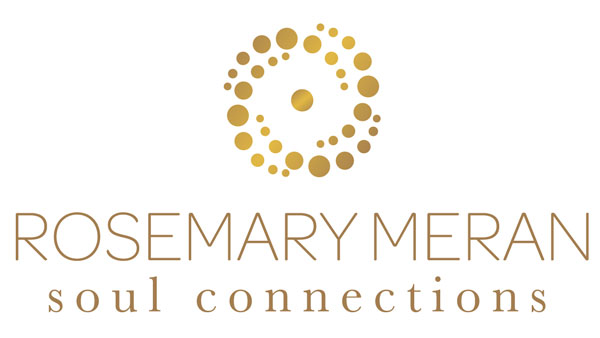
The Eight Limbs of Yoga as a Pathway to Conscious Motherhood
FEBUARY 2024
To be a mother is to experience growth, challenges, and joy—often all at once and within a single moment. This journey encompasses ups and downs, moments of confusion, profound love, and wisdom. As mothers, we experience our weaknesses and strengths simultaneously, without any veils or disguises. To love so deeply, to desire to protect so fiercely, and to ultimately realize that the lives of our children are not entirely within our control—this embodies the very essence of yoga. It calls us to devote ourselves to something much vaster within, to act wholeheartedly without attachment to the results, and to surrender the fruits of our efforts to a greater understanding.
Motherhood is inherently a journey of union, where we aim to reconcile various aspects of ourselves, unveiling a deeper essence—a center that can be experienced as we find our way and help our children find theirs. For this sacred endeavor, I have often turned to the ancient wisdom of Patanjali’s Yoga Sutras and the Bhagavad Gita. In the everyday toil, these texts have served as guiding lights.
In this entry, I focus on Patanjali’s Eight Limbs of Yoga, outlining a practical path for living with intention, peace, and deep connection as we mother our children and tend to ourselves. Using the eight limbs as a map or holistic structure has allowed me to recognize the stillness and centered awareness at the root of every experience, enabling me to embody this awareness so that my actions and how I relate to my children are more aligned with my deepest essence.
Below, without delving too deeply into philosophy, I describe the eight limbs and offer some practical applications for daily living and mothering, drawing particularly from the first two limbs, Yama and Niyama. I acknowledge that the sutras represent a vast body of wisdom, multi-layered, and applicable to every aspect of our lives. While I have only scratched the surface here, my intention is to briefly illustrate how this ancient text can help us integrate a little more harmony, openness, and ease as we navigate the day-to-day challenges of motherhood.
So, how can the Eight Limbs help us better align with our nurturing qualities and provide both us and our children with a supportive and reliable experience?
The Eight Limbs of Yoga: A Framework for Conscious Motherhood
Yamas (Ethical Standards): These are principles that can guide us in interacting harmoniously with the world around us, cultivating an environment of kindness, truthfulness, generosity, moderation, and openness.
Niyamas (Self-Discipline Practices): These are practices that encourage personal growth and self-care through purity, contentment, discipline, self-study, and surrender to a higher power.
Asana (Physical Postures, steadiness, seat): Engaging in yoga postures strengthens the body, enhances flexibility and steadiness, and cultivates inner calm, preparing mothers to approach the physical and emotional demands of parenting with grace.
Pranayama (Breath Practices): This limb focuses on using the breath to maintain emotional balance and clarity; the breath becomes a peaceful refuge amidst the challenges of motherhood.
Pratyahara (Withdrawal of the Senses): Pratyahara involves drawing attention away from external distractions to focus on internal needs, fostering an experience of nurturing and strengthening the bond between mother and child.
Dharana (Concentration): Cultivating focused attention enhances the quality of interactions with our children, making each moment more meaningful.
Dhyana (Meditation): Regular meditation practices nurture a state of inner peace, providing a foundation of patience and understanding in parenting.
Samadhi (Blissful Unity): Experiencing deep connection and unity within, Samadhi highlights the profound and spiritual bond that is present and is the root of the mother and child relationship.
In this section, I will briefly discuss the first two limbs of Patanjali’s Yoga Sutras: the Yamas and Niyamas. These principles form the foundation for the subsequent limbs and can be practiced in any order. As you explore these principles, you’ll notice how each reflects aspects of the others, creating a cohesive and practical approach to living. Integrating the Yamas and Niyamas into your daily life provides a beautiful framework for nurturing both yourself and your family. I will explain each principle and offer examples to demonstrate how these can be effectively applied in your daily interactions with your children and in your personal self-care routines.
Yamas: Ethical Practices in Daily Motherhood
Ahimsa (Non-violence) – Kindness and Harmony: Ahimsa involves the practice of non-harm towards others and oneself, emphasizing compassion, understanding, and patience in all interactions. For instance, when we find our children arguing over a toy, instead of reacting with immediate frustration or anger, we can calmly intervene if necessary, encouraging them to express their feelings and guiding them towards a harmonious resolution. Later, feeling overwhelmed by the day’s chaos, we can opt for a short, mindful walk alone, reminding ourselves of the importance of self-care and inner peace.
Satya (Truthfulness) – Authenticity and Integrity: Satya encourages honesty and authenticity, speaking the truth in a way that is both thoughtful and beneficial. You can practice Satya by having an open conversation with your partner about feeling overburdened with household responsibilities, seeking support without blame. You can also encourage your children to share their feelings and thoughts, nurturing an environment of trust and openness.
Asteya (Non-stealing) – Generosity and Abundance: Asteya goes beyond the literal interpretation of not stealing, to include the idea of not taking more than one needs and sharing generously. We can practice Asteya by ensuring we divide our time equitably between work, our family, and ourselves, consciously avoiding the “theft” of time from any area due to neglect or overcommitment.
Brahmacharya (Moderation) – Mindful Moderation and Balance: Traditionally associated with celibacy, Brahmacharya in a broader sense encourages the right use of energy, advocating for moderation and balance. We can embody this principle by creating a balanced schedule that includes time for work, family activities, personal hobbies, and rest, ensuring we do not expend energy to the point of exhaustion in any single aspect of our life. This balance helps maintain our vitality, allowing us to be present and engaged with our children.
Aparigraha (Non-possessiveness) – Openness and Letting Go: Aparigraha teaches letting go of attachments and embracing life as it comes, without trying to control outcomes or hoard possessions. When our child shows more interest in art than in the piano lessons we once insisted upon, we practice Aparigraha by supporting our child’s new interest, letting go of our own expectations and encouraging our child’s exploration and growth. Also by allowing the day to be just as it is, practicing letting go of how we think things need to be and simply embracing the experience of life in that moment, messy and imperfect.
Niyamas: Self-Discipline Practices in Daily Motherhood
Saucha (Purity) – Clarity and Cleanliness: Saucha involves maintaining cleanliness and clarity in both the physical and mental realms. We can practice Saucha by organizing a family day for cleaning and decluttering the home, making it a fun and collaborative activity. For mental purity, we can allocate time each morning for meditation before the household awakens, clearing our minds to face the day with calmness and intention.
Santosha (Contentment) – Joy and Gratitude: Santosha is about finding contentment and gratitude in the present moment, regardless of life’s external circumstances. We can cultivate Santosha by starting a family gratitude jar, where each member adds notes of small joys and gratitudes daily or we can have a moment of gratitude right at the dinner table before eating. These practices not only enhance our own sense of contentment but also invite the children to notice and appreciate life’s simple yet abundant blessings.
Tapas (Discipline) – Passionate Commitment and Resilience: Tapas refers to the fire of discipline and passionate commitment to personal growth and practices that enhance one’s well-being. We can invite Tapas by committing to a daily or weekly yoga asana and meditation practice, nurturing ourselves and illustrating to our children the importance of self-care and perseverance, also encouraging commitment as the entranceway to freedom and liberation, unveiling the joy and sweetness inherent in effort and dedication.
Svadhyaya (Self-study) – Self-Awareness and Reflection: Svadhyaya involves introspection and the study of oneself, encouraging personal growth through self-awareness. We can engage in Svadhyaya by keeping a journal where we reflect on our parenting experiences, challenges, and emotions and by encouraging open discussions about feelings and thoughts, promoting self-awareness and mutual understanding among all family members.
Ishvara Pranidhana (Surrender to a Higher Power) – Trust and Openness to Life: This principle invites the surrendering of one’s self and our personal efforts to a higher power or the flow of life, recognizing that not everything is within our control. When facing uncertainty or difficult decisions, we can practice Ishvara Pranidhana by sharing our thoughts and fears, and expressing faith in being able to overcome the challenges life presents, this allows for an experience of resilience and the strength found in faith and collective support.
May your journey of motherhood be infused with compassion and understanding, guiding you to embrace both the challenges and joys with grace and resilience. May you cultivate patience in times of adversity and celebrate the small victories with heartfelt gratitude. As you walk this path, may you recognize the interconnectedness of all beings and strive to create a world filled with empathy, kindness, and acceptance. With each breath, may you nurture the seeds of love and compassion within yourself and your children, sowing the seeds of a brighter and more harmonious future for generations to come.

ROSEMARY MERAN
As a certified birth and postpartum doula, lactation counselor, and hypnotherapist, I specialize in using Hypnotherapy to enhance the childbirth experience. I offer both in-person and virtual sessions to guide you in connecting with a deep inner state of calm and ease during labor, no matter where you are. My sessions in Soul Connections and Clinical Hypnotherapy are designed to release fear and tension, nurturing a profound, meaningful connection with your baby. With my expertise in Transpersonal Hypnotherapy and Soul Integration, I help you connect with your inner wisdom, empowering you to become a mindful, present, and spiritually aware parent. My holistic approach supports you in cultivating trust and confidence throughout your pregnancy, birth, and beyond.
jOIN OUR MAILING LIST
Sign up to receive email updates, announcements, poetry, inspiration, meditations, blog articles and more.




